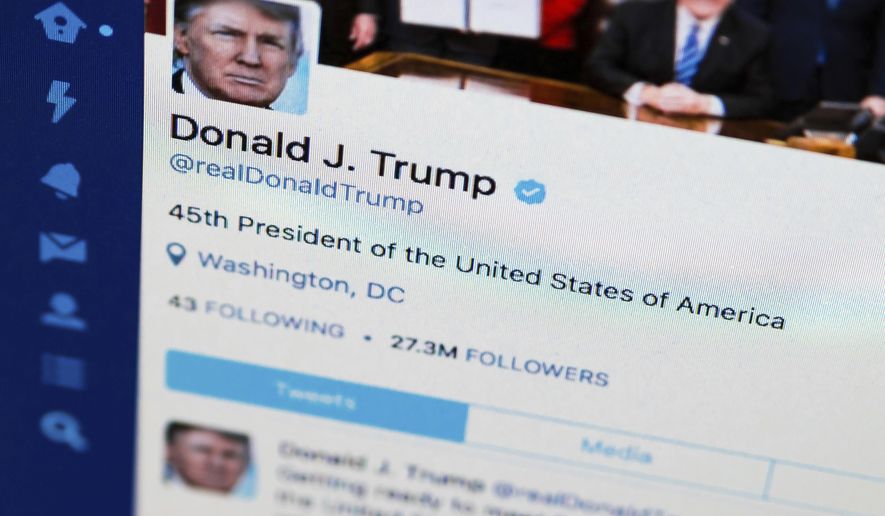The salacious dossier detailing President Trump’s alleged ties to Russia isn’t bogus simply because he said it is, a federal judge ruled Thursday.
Deciding on a Freedom of Information Act (FOIA) lawsuit involving the so-called “Steele dossier,” U.S. District Court Judge Amit Mehta wrote that Mr. Trump’s tweets dismissing the document as dubious aren’t necessarily “rooted in information he received from the law enforcement and intelligence communities.”
“[T]here is little reason to believe that the president’s characterization of the dossier as ’fake’ and ’discredited’ is necessarily premised on information found in government records,” the ruling said.
The decision out of D.C. federal court comes nearly a year after Politico reporter Josh Gerstein and the James Madison Project transparency group first sued the government in hopes of obtaining a two-page synopsis of the dossier that had been presented to Mr. Trump shortly prior to his inauguration last January, as well as any “final determinations” reached with respect to its accuracy.
Several government agencies stonewalled their requests, and the Department of Justice refused to confirm or deny any records even existed, but the plaintiffs pointed toward the president’s Twitter account and argued that his multiple tweets discrediting the dossier might have been based on the government’s assessment.
Ruling for the Justice Department, Judge Mehta said that the government was right to refuse the FOIA requests, and that Mr. Trump’s tweets about the dossier aren’t enough to infer that a conclusion was reached involving its veracity.
While Justice Department attorneys acknowledged in earlier court filings that the government considers Mr. Trump’s Twitter musings to be “official statements” of the president, Judge Mehta said that doesn’t automatically make them the source of any government intelligence.
“Plaintiffs point to no case law that expands the presumption to official statements such that, absent contrary evidence, courts must presume that an official statement is premised upon documents in the government’s possession,” wrote Judge Mehta, a D.C. federal judge appointed by former President Barack Obama.
Mr. Trump’s “statements may very well be based on media reports or his own personal knowledge, or could simply be viewed as political statements intended to counter media accounts about the Russia investigation, rather than assertions of pure fact,” he wrote.
Brad Moss, an attorney for the plaintiffs, is considering an appeal, Politico reported.
“We are disappointed in the Court’s ruling and are evaluating the possibility of an appeal. Of far more concerning significance is the legal implication of this ruling, in so much as it reduces official statements by the President of the United States into little more than random musings by a proverbial carnival barker who just happens to also serve as the Chief Executive,” Mr. Moss said. “It is difficult to envision a scenario in which it is in the national interest of this country for the President’s statements to be so cavalierly disregarded in this manner.”
The Department of Justice declined to comment when reached by The Washington Times.
The dossier in question was compiled by Christopher Steele, a former British intelligence agent, and alleges improper ties between Mr. Trump and Russia.
The U.S. intelligence community has concluded that the Russian government interfered in the 2016 White House race, and four congressional committees and a DOJ-appointed special counsel are currently investigating claims involving Russia’s role as well as any ties between Moscow and Washington.
Russia has denied meddling in the election, and the White House has denied colluding with the Kremlin.
• Andrew Blake can be reached at ablake@washingtontimes.com.




Please read our comment policy before commenting.